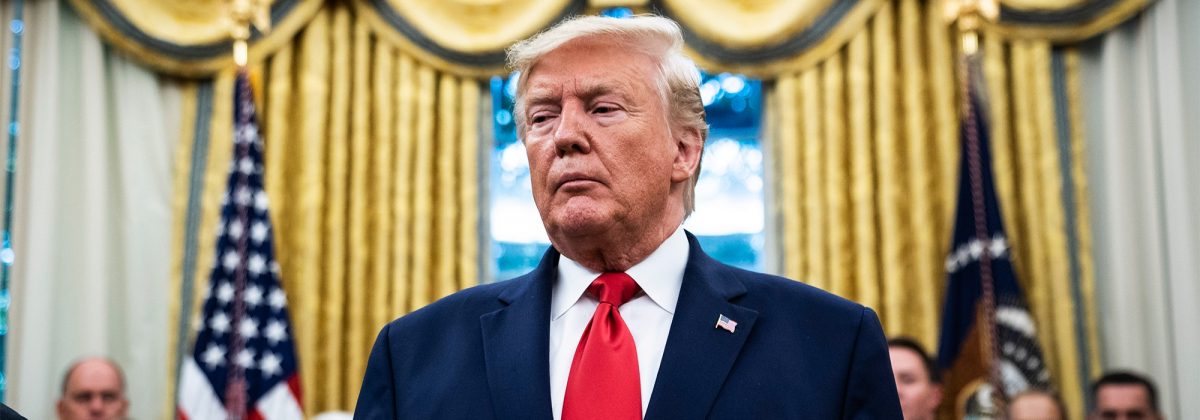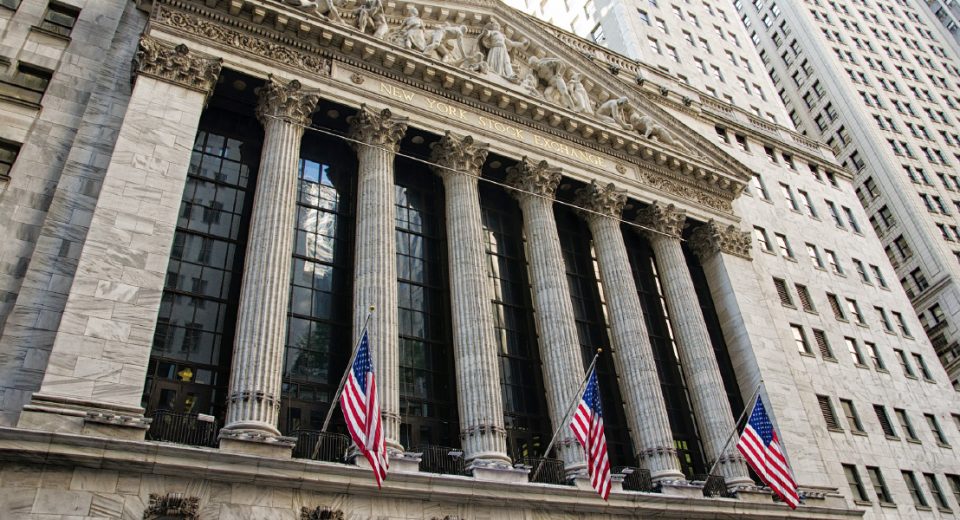How did the Market React to the Trump Impeachment News?

A US President getting impeached is nothing new for the world, but never has the market been so unperturbed by it. On December 18, 2019, US President Trump became the third president in the history of the United States to be impeached by the House of Representatives, on charges related to abuse of presidential powers and obstruction of Congress enquiry.
However, as the world waited for the markets to collapse, little happened in the aftermath. The US is the world’s largest economy and impeachment news of the world’s most powerful leader was expected to rattle the global markets.
The S&P 500 declined 26% between President Nixon’s impeachment proceedings and his resignation in 1973. On the other hand, President Clinton’s impeachment process and his acquittal had resulted in a stock market rally in 1999. The S&P 500 gained approximately 27% in this period. Does this mean that the stock markets have little correlation with political forces? Why did the markets choose to ignore the Trump impeachment?
Markets Remain Unfazed with Trump Impeachment
The stock market largely trended sideways after the news. Both the S&P 500 and Dow Jones Industrial Average (DJIA) were slightly up by 0.1%. Moreover, both indices proceeded to register record highs in the first session after any impeachment news in history. While the DJIA rose 0.4%, the S&P 500 was up 0.3%.
Even the US Dollar remained unaffected. The Dollar index was trading at 97.40, quite close to a 6-day high of 97.475, which it was trading on the eve of the announcement. However, the British Pound was trading down at $1.3083, on renewed fears of a chaotic Brexit. Robust jobs data in the Australian economy led the Aussie to soar to $0.6883. Another risk-sensitive currency, the New Zealand Dollar (NZD), fell to a one-week low of $0.6588. The MSCI’s broadest index of Asia-Pacific shares briefly rose to its highest value since June 2018, before declining 0.4%. FTSE futures rose 0.02%.
Political uncertainty in the world’s largest economy kept gold prices higher at $1,476.69 per ounce, a 0.1% gain as investors maintained a cautious outlook.
Overall, the market barely reacted at all.
Why did the Market Ignore This Event?
The primary reason why the event didn’t impact the markets significantly was that investors had majorly factored in the news beforehand. It is widely believed that the chances of President Donald Trump being impeached by the US Senate are very low, since it has a Republican majority. The very fact that the US President is himself calling upon a fast trial date shows how futile these proceedings are. So, investors are not too worried about a change in administration.
Without Trump’s removal from office, there is unlikely to be any significant change in the US monetary policies, which could otherwise have been a cause for concern.
In short, the markets will now largely focus on economic factors, trade and corporate earnings, rather than impeachment news.
Overall sentiment was supportive of stocks and risky assets, on expectations of the world economy reviving in 2020. Market sentiment was also upbeat regarding the announcement of a first-phase deal between the US and China.
Are Political Developments Less Relevant for the Markets Now?
Experts agree that no single country leader can be the sole driver of a nation’s economy. So, the wide claims by President Trump about how his removal could lead to a stock market collapse are completely baseless.
Stocks actually rallied following Clinton’s impeachment enquiry, but that was due to the dot-com bubble. During Nixon’s impeachment, there was a raging oil crisis, inflation was high and the US economy was close to recession.
Similarly, the market indifference to Trump’s impeachment has been driven by large fiscal stimuli offered by global central banks. Investors focused on positive news like the China and NAFTA deals and the US budget accord being approval by the Senate.
Does that Mean US Politics is Irrelevant?
No, it cannot be irrelevant. But, traders need to understand that the markets will move in accordance to who investors think will come to power. Not only is it unlikely that President Trump will be removed, but there is a consensus now that his chances of being re-elected in the 2020 US Presidential elections have increased.
If President Trump comes back to power, it is likely that he will remain a staunch advocate of protectionism and interest rate cuts. That means that the US Dollar is poised for a downturn in the latter half of 2020, which could be good for the stock market. It is also unlikely that any further corporate tax cuts will be allowed. President Trump might impose higher personal income tax rates for wealthy earners. However, that is not really expected to be reflected in stock prices.
What Risks Need to be Considered?
The US Senate has said that it will not take this impeachment matter lightly. If the proceedings drag on, it could be bad for investor sentiment. If the President is impeached, the resulting political turmoil could spark global market unrest. Moreover, this could be bad news for an already slow global economy.
All eyes are on how the first-phase deal between the US and China pans out. A smoother Brexit could also prove to be a boon. Trial proceedings associated with the impeachment are likely to start from January 21, 2020. Traders are closely following the events leading up to the trial.
Any drastic development could lead to currency market volatility. Proper risk management tools are crucial at this time for all trading strategies.
Reference Links
- https://edition.cnn.com/2019/09/29/investing/how-impeachment-affects-markets/index.html
- https://www.forbes.com/sites/sergeiklebnikov/2019/12/19/dow-jones-and-sp-500-hit-record-highs-day-after-trumps-impeachment/#4e8bb0e86f1f
- https://www.reuters.com/article/global-forex/forex-dollar-barely-flinches-after-trump-impeachment-aussie-jumps-on-solid-jobs-data-idUSL4N28T0H8
- https://www.reuters.com/article/global-markets/global-markets-asian-shares-retreat-from-highs-markets-take-trump-impeachment-in-stride-idUSL4N28T156
- https://www.marketwatch.com/story/republican-senators-indicate-they-wont-just-dismiss-trump-impeachment-2020-01-13
- https://www.cnbc.com/2019/12/19/president-trump-impeached-heres-what-it-could-mean-for-markets.html







